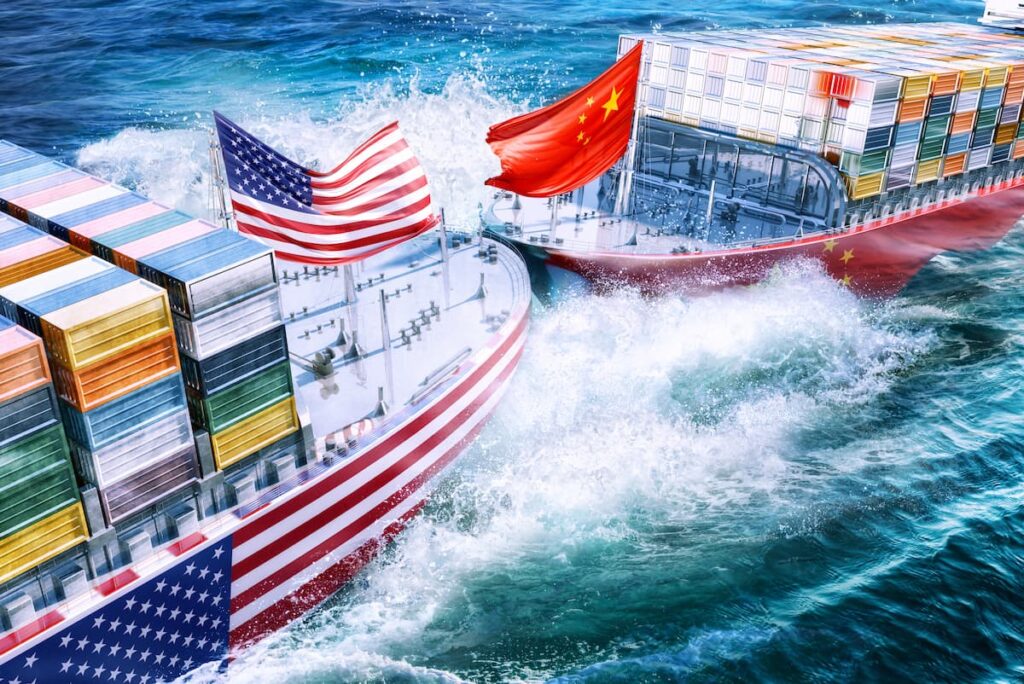Beijing remains defiant as U.S. signals possible easing of trade war.
President Donald Trump’s suggestion that the United States could substantially reduce tariffs on Chinese imports was welcomed by global markets but met with deep skepticism, and some mockery inside China. Officials in Beijing rejected the notion that trade negotiations were underway and demanded a full rollback of U.S. tariffs.
Speaking from the Oval Office on Tuesday, Trump said tariffs on Chinese goods would “come down substantially” and promised a softer tone in future negotiations, even pledging not to mention the origins of COVID-19. But Beijing responded with a sharp rebuke.
“The unilateral tariff hikes were initiated by the U.S.,” said He Yadong, spokesperson for China’s Commerce Ministry. “If the U.S. truly wants to resolve the issue, it should fully remove all unilateral tariff measures against China and find a way to resolve differences through equal dialogue.”
China’s Foreign Ministry went further, denying that any trade discussions were currently taking place. “These are all fake news,” spokesperson Guo Jiakun told reporters. “To my knowledge, China and the United States have not engaged in any consultations or negotiations on the tariff issue.”
Distrust in Trump’s Intentions
Experts close to the Chinese government view Trump’s rhetorical shift as a domestic tactic aimed at calming Wall Street and easing inflation concerns. They argue China has the upper hand and is in no rush to engage.
“The pressure at home is mounting on Trump,” said Wang Yiwei, director of the Institute of International Affairs at Renmin University in Beijing. “But China doesn’t buy into his talk. He says one thing today and another tomorrow. He’s not trustworthy.”
Wu Xinbo, director of the Center for American Studies at Fudan University in Shanghai, echoed the sentiment, noting that Beijing is well-prepared to endure continued economic pressure. “Instead of accepting offers to talk too soon, it might be more beneficial to endure a bit of conflict first,” he said.
Chinese leader Xi Jinping has spent recent weeks touring Southeast Asia, reinforcing China’s image as a stable political and economic partner. Still, the domestic economy remains fragile. Some experts believe the country may eventually have no choice but to negotiate.
Public Derision and Censorship
Trump’s apparent climbdown has sparked ridicule on Chinese social media. On Wednesday, the hashtag “Trump chickened out” trended on Weibo, generating over 150 million views. Other users dismissed the idea of negotiations unless the tariffs—currently at 145%—are fully lifted.
“If the so-called reciprocal tariffs aren’t even canceled—don’t bother negotiating with them!” read one popular comment.
Behind the scenes, however, there is concern about the long-term impact of prolonged tariffs. A Chinese foreign policy expert, speaking to CNN anonymously, said, “We’re being tortured by the grim economic decline… If the 145% tariffs remain, our foreign trade landscape would be significantly impacted.”
Other critical voices, such as a researcher from the Chinese Academy of Social Sciences who labeled China’s retaliatory tariffs “completely wrong,” have been censored online after gaining attention.
Economic Outlook Under Pressure
Although China set a 5% growth target for 2025, economists doubt that momentum will hold. Goldman Sachs has warned that U.S. tariffs will “significantly weigh” on China’s economy, even though exports grew 12.4% year-over-year in March.
Privately, Chinese experts believe negotiations are inevitable. “China is posturing,” the anonymous expert said. “The goal is to save face—wait for the U.S. to blink first, then spin any compromise as a Chinese victory.”
Trump’s comments follow private meetings with executives from Walmart, Target, Home Depot, and Lowe’s, all of whom raised concerns over rising costs and market instability due to the ongoing trade war.
A senior White House official told the Wall Street Journal the administration is considering reducing tariffs on Chinese imports to between 50% and 65%, though analysts say this may not be enough to bring China to the negotiating table.


